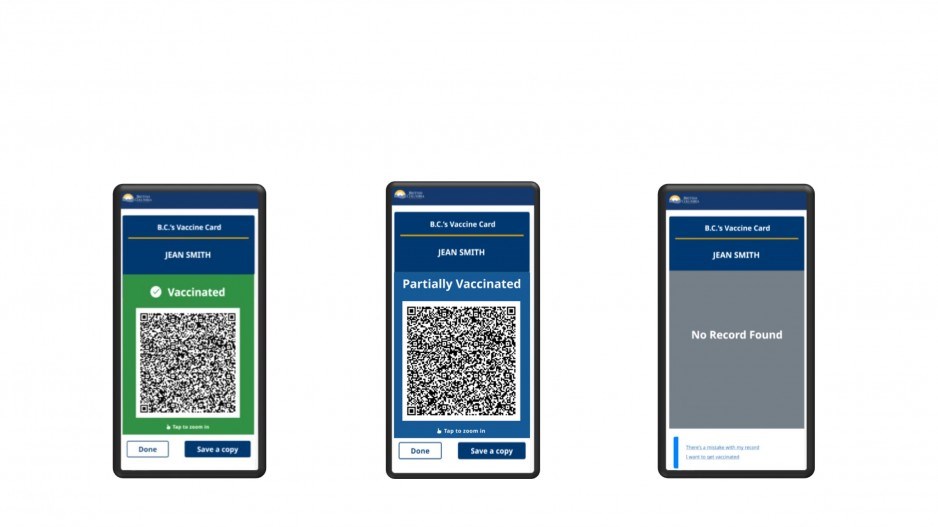Despite some blowback to B.C.’s COVID-19 vaccine card, the spread of such programs is a must if Canada’s economy is to stay afloat, according to the head of one of the country’s largest business organizations.
“The impact of going back into lockdown again would be simply devastating for so many businesses, for families and for others,” Perrin Beatty, president and CEO of Canadian Chamber of Commerce, said Friday during a virtual panel hosted by the Surrey Board of Trade.
B.C.’s own vaccine card rolled out on Monday, requiring patrons at everything from restaurants to ticketed sports games to show proof of their own vaccination status to be granted entrance.
The certification is not required for some locations, such as retailers, fast-food restaurants or facilities offering public health services.
This initiative comes amid surging cases of COVID-19 that have mainly targeted the unvaccinated.
But Beatty noted a “pressure campaign” has already been directed against hospitals, frontline workers and medical patients this month, with protests drawing thousands to locations such as Vancouver General Hospital.
He said that campaign is now ramping up and targeting businesses since Monday’s deployment of the B.C. vaccine card.
“It’s simply unacceptable in a society like ours,” Beatty said.
“The authorities have to make sure that they provide the assistance to business across the country to be able to function within the law.”
But B.C. officials are urging businesses not to call police as the first resort in the event patrons choose not to show proof of vaccination.
Instead, the province is hoping individuals will be dissuaded by a fine of up to $575, which could be issued by cannabis inspectors, health inspectors, community safety units, gaming investigators and bylaw officers.
“Enforcement will be difficult,” lawyer Jordan Thompson, a senior associate specializing in labour, employment and human rights at Fasken Martineau DuMoulin LLP, said during the panel.
Despite some businesses announcing they will openly flout the new requirements to confirm patrons’ proof of vaccination, Thompson said the best course of action is to maintain compliance with the new orders even if businesses are met with resistance from British Columbians.
“In the event the business does receive a human rights complaint, it will be able to simply point to its obligation under one of the two respective orders, and the promotion of public health generally as a justification for the discriminatory conduct,” he said.
B.C. Premier John Horgan described those wishing to flout the rules as a “decidedly small minority.”
“We have not made this about cracking down. We’ve made this about following the lead of the public and the public wants confidence that when they go out to these non-essential activities they will be doing so with people of like mind, people who have taken steps to protect themselves,” he said during a separate briefing on Friday.
“The objective here is to give a sense of comfort to those engaging in non-essential activities.”
Thompson said the most contentious issue facing the B.C. vaccine card rollout has been the seeming lack of permissible exemptions for people who have a “medical contradiction” preventing vaccination, such as the immunocompromised.
He noted B.C. is taking a stricter approach than provinces like Ontario, which have carved out such exemptions.
Thompson said the number of people who would genuinely qualify is so small that granting the exemption would not have a discernible impact on the government’s public health goals.




